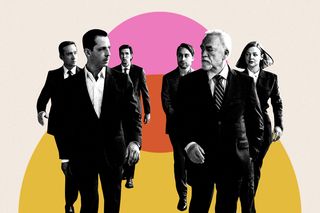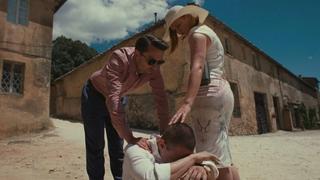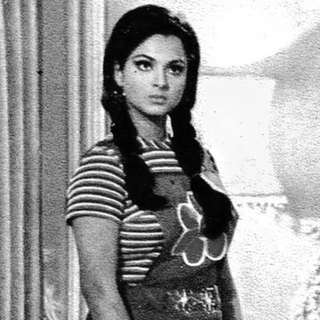
‘Succession’ Plays Out Like a Shakespearean Tragedy — One Where People Are Doomed to Live
The irony lies in the title of the show — everyone is stuck in a cycle of ambition, defeat, and greed.

It is a Renaissance painting. It has Biblical parallels. No, it carries the moribund undercurrents of a Sophoclean Greek play. The third season of Succession lives as the sum of all these interpretations, andperhaps, more.
For 29 episodes, the HBO show has presented itself as a dark comedy about terrible people doing terrible things. The last nine episodes that aired this season are faithful to this premise, but they significantly use the narrative of tragedy as a crutch. What strikes out arethe contours of Shakespearean plots — the tragic hero, the good and bad morals, greed, revenge, hamartia (the tragic flaw). Yet, it also manages to subvert the narrative, by never letting it reach closure. Here, like Kendall Roy, the “oldest son” (sorry Connor), people are doomed to live in the confines of a fictional media overlord’s whims.
It is quite rich to compare a limited series with the solemn and searing ways in whicha tragedy plays out. But these references (Shakespearean, Roman, Greek, Jacobean — you name it) thickly occupy the show’s air. Why Succession so deeply clings to these mythical references cuts to the heart of the show’s essence. It is classical pomp, the delusion of being greater than thou, the unbridled power that lies with this group of flawed individuals who could change the course of truth and reality. In the dramatically tense finale, Kendall, Shiv, and Roman were arranged in a way that alluded to High Renaissance art — “his crumpling in the dust as he confessed, with his brother and sister reluctantly flanking him in the corrupted shape of a heart, reminded me of the Bandini Pietà, also known as ‘The Deposition,'” as one writer described it. While in Shakespeareanarcs there is the divine weight of supernatural elements and prophecies, in Succession, there is the moral preoccupation with legacy and greatness that make the ritualistic splendor a necessity.
Other parallels to the tragedy have been there all along. In episode 3, this came in the form of a seemingly innocuous box of doughnuts, which were alas glazed in terrifying meaning. A writer found the use of “objective correlative,” where an image or object creates a strong sense of feeling or emotion. Think Lady Macbeth in Macbeth, where the “damn spot” of blood symbolizes her deep, unresolvable guilt. Similarly, the doughnut box dear Mr. Logan Roy sends in this episode — a symbol of his omnipresence and irate affection — becomes a reminder of decades of parental abuse and neglect. The blood in Macbeth is replaced by water in Succession; every seasonal tragedy and the ideological act of bloodshed is tied to water and immersion. (Kendall’s weightless figure lying in still in episode 8; the waiter who died in Season 1, and many more hints)
The relationship between Succession and King Lear, one of the most storied tragedies, is deeply embedded; the show’s creator pitched the series to actor Jeremy Strong (who plays Kendall Roy) as a King Lear-like tragedy. Even Logan Roy’s frailty during the season — the UTI, the confusion — all signal frailty echoing King Lear, hinting the media overlord may finally be near the end.
Moreover, in the now-infamous profile of Strong, the lines by one of the creators strike out: “He’s not playing it like a comedy. He’s playing it like he’s Hamlet.” Hamlet feigns madness as he avenges his father’s death in the play; in season 2 of the show, Kendall turns the loyal son in need of parental affection as he does his father’s bidding. The element of the “tragic hero,” key to every tragedy, finds an appropriate host in Kendall Roy. He is the one who must face adversity as a result of his persona or just because this is his destiny. In episode 8 (Chiantishire) of this season, Kendall, now beleaguered from the legal fight against the company, realizes the fate he must live and relive — of abuse and defeat. Even the freedom of death is out of reach.
His conflict is as much internal as is external. Remember how Kendall clings to the idea thathe is “good” and his father is “bad”? But Succession represents the moral chaos at play; good and bad mean different things to different people.
Related on The Swaddle:
‘Tick, Tick… BOOM!’ Is a Tragedy About Time, but It Doesn’t Ask Who Gets To Have It
Where there’s a tragedy, there’s also betrayal, which is central to every finale of the show. It’s not one single act but one that is the logical extension to the prolonged narrative. In this case, as the now united sibling triad of Kendall, Shiv, and Roman march valiantly towards Logan’s war room, they find themselves betrayed — this time around by the mother. Weaved within the plot are hints of Tom Wambsgans‘ (Shiv’s husband, played by Matthew Macfadyen) betrayaltoo.
“What am I going to do with a soul anyway?” Greg (played by Nicholas Braun) says in the season finale, seconds after he is propositioned to play a bold move. Like Greg, no character is slightly perturbed by the bargain they make with the devil — which in this case, could be anything from political ambition, capitalist greed, or simply, lacking a moral compass. Interestingly, someone like Kendall seemed to already be reaping the consequences of making this Faustian bargain. In Christopher Marlowe’s play Doctor Faustus, the doctor makes a pact with the devil in order to obtain knowledge and power in exchange for his soul. Kendall seems to echo the very end of the play when he realizes the tragic folly. He asks to be set free from not only the family business but the family itself.
In some ways, Succession is also a Greek tragedy. Two elements Aristotle noted to bring out the turn of events are: the startling realization (Anagnorisis) and change in the reversal of fortune (peripeteia). The discovery happens when Shiv and Roman finally understand the truth Kendall has lived with — their father will never deem them as worthy successors. This dramatically brings about a reversal of fortune — that the company and wealth promised to them will never be theirs. The air is ripe with tension; Roman, now on his knees (echoing Kendall’s fall from before), realizes the extent of the power he may never have.
Despite the stark parallels to a tragedy, Succession still manages to evade the only plausible end. Tragedies come with the promise of catharsis — a feeling marked by pity (at the characters) and fear (that one may be condemned to a similar fate because of shared values).
As Kendall demonstrates a sense of deep remorse, shame, and awareness of his own mistakes in the last episode, there’s empathy and pity. Jeremy Strong, in an earlier interview, also noted how “I hear from a lot of people how unlikeable these characters are, and I find that so interesting as if a character is either likable or unlikable.” The binary is not quite clearly marked.
But Succession carries an air of defiance, perhaps true to its desire to be greater. In the final episode, “All the Bells Say,” Logan reads a book to his grandson about a beloved cat who dies, but whose spirit lingers to help a new kitten adjust to her family. “Even in feline form, the message about mentoring the next generation failed to resonate with Logan,” The Atlantic noted.
Related on The Swaddle:
Why Stories About Filthy Rich People Fascinate Us
At least tragedies end — people die, there is a coup, betrayal, victory, a veritable end. But the Shakespearean tragedy of “succession“ is simple: it is all about circularity.
Succession will always reach the same conclusion. The broad strokes remain unchanged — there is organizational shuffling, Kendall will aim for the moon and land below the ground, there will be betrayal and loss, people will sell their soul hoping for more. The irony lies in the title of the show — the characters are stuck in a cycle of ambition and defeat. “They don’t get the fact that this is a game and you’ve got to be good at it. You gotta be committed and you gotta play it, but it’s a game,” Brian Cox, who plays Logan Roy, said in a recent interview. Then you’re playing Monopoly, which the characters seem to be playing at the start of episode 9. The only prize is taking power away from the very people you’re playing alongside.
Writer Sophie Gilbert noted, also asking in The Atlantic: “Will Succession always be exactly like this, over and over? Do we even want it to change?”
The show’s cyclical nature feels perhaps reads like a nihilist acceptance. “Late capitalism will always insulate the extraordinarily privileged from real consequences, and so the best we can do is voyeuristically enjoy their misery along the way,” Gilbert added.
Or as the three witches in Macbeth use these lines as an allegory for evil, hinting at the worse fate for humans:
“Double, double toil and trouble;
Fire burn, and cauldron bubble.”
I leave you with one frame that holds the weight of it all — in the 16th-century Tuscan villa, the brutal and bleak succession of abuse is doomed to continue.

Image credit: Succession (2021)
Saumya Kalia is an Associate Editor at The Swaddle. Her journalism and writing explore issues of social justice, digital sub-cultures, media ecosystem, literature, and memory as they cut across socio-cultural periods. You can reach her at @Saumya_Kalia.
Related


Do Problematic Classics Like ‘West Side Story’ Deserve Remakes?
